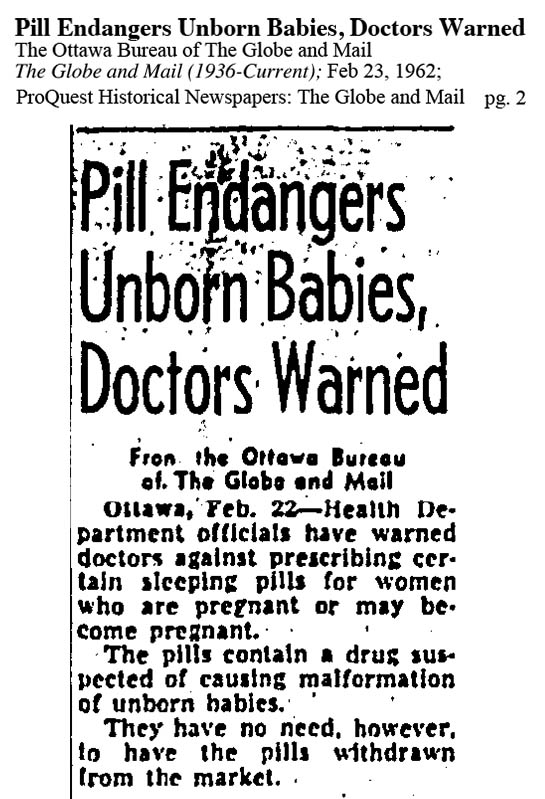 Canada was woefully slow to react to the Thalidomide crisis. The attached February 1962 Globe & Mail article quotes a Federal Food and Drug Directorate official stating “one shouldn’t jump off the deep end”, since scientists hadn’t yet proven if “malformations should be attributed to the drug”.
Canada was woefully slow to react to the Thalidomide crisis. The attached February 1962 Globe & Mail article quotes a Federal Food and Drug Directorate official stating “one shouldn’t jump off the deep end”, since scientists hadn’t yet proven if “malformations should be attributed to the drug”.
Canada would become one of the countries hardest hit by Thalidomide. The drug was eventually withdrawn from Canadian pharmacy shelves in April 1962. As a result of the scandal, the Canadian government overhauled its drug approval process. Health Canada was put in charge of the introduction process of new medications. For the first time, drug manufacturers were now required to produce “substantial evidence of the clinical effectiveness” of a new drug, including in vitro studies. The new regulations became effective in 1962/63. However, for decades, the Canadian government did nothing to compensate its survivors for the damages caused by Thalidomide, apart from supplying them with mostly useless prosthetics. After years of lobbying by the War Amps, in 1991 Thalidomide survivors finally received single lump sums (between $52,000 to $82,000 per person).
In 2015 Ottawa announced another long-awaited compensation package: $125,000 for each survivor plus an annual tax-free pension for the rest of their lives of $25,000, $75,000 or $100,000, depending on the severity of their condition.